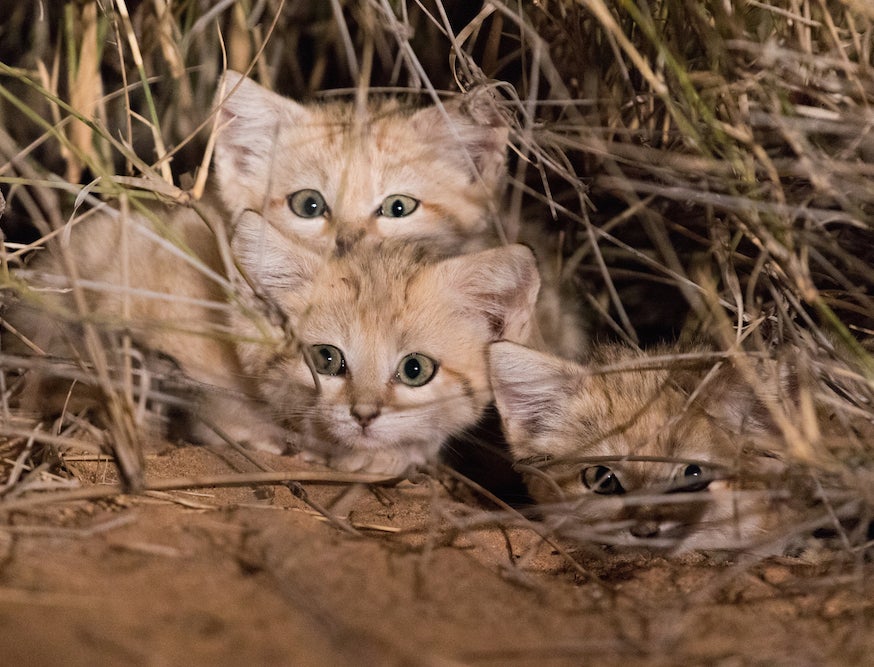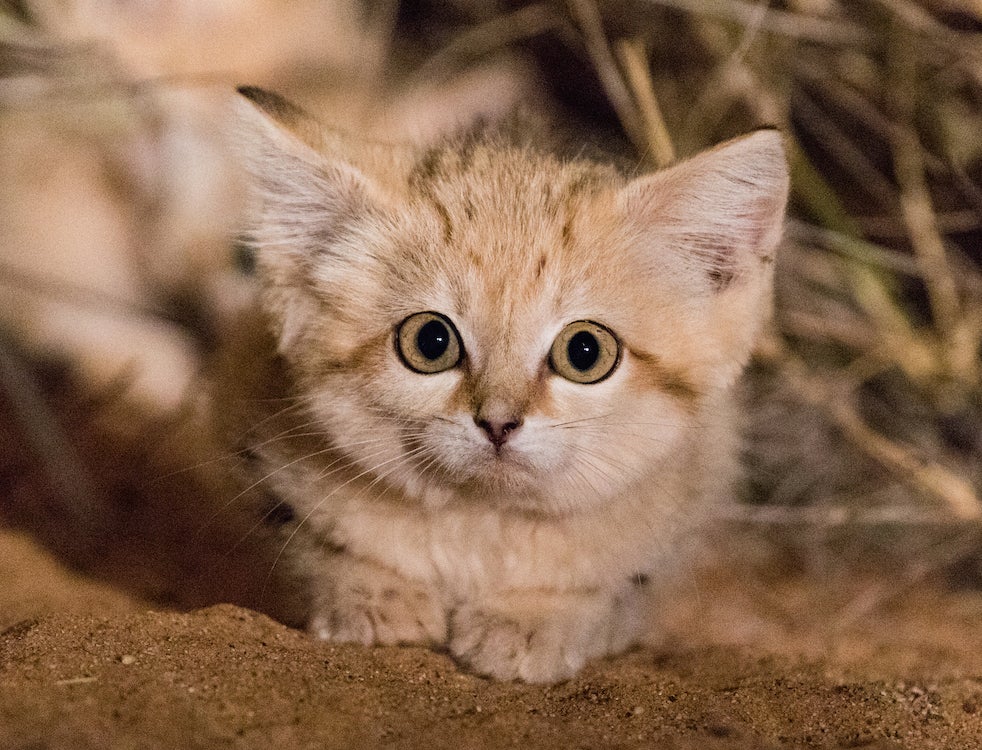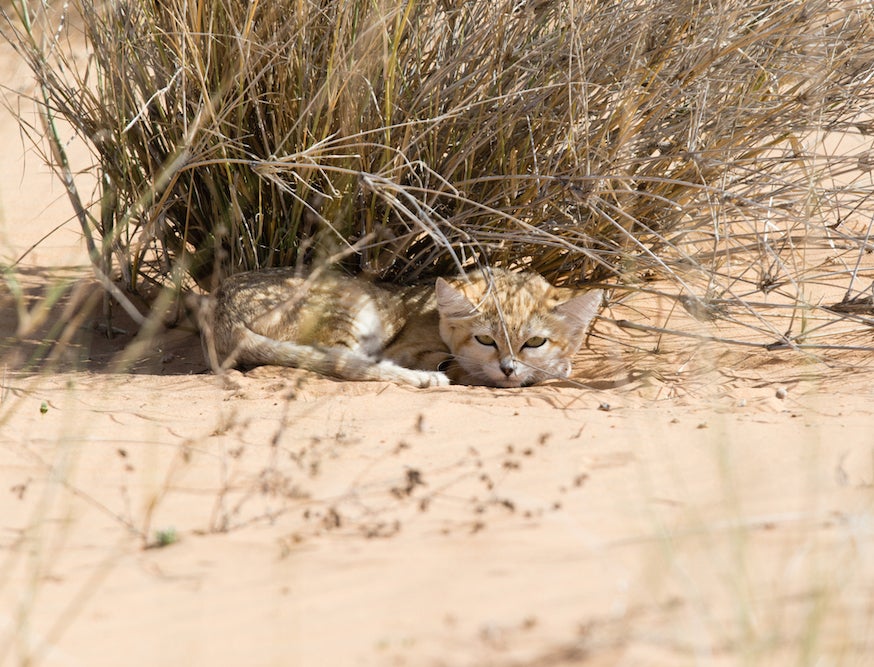Sand cat kittens captured on video in wild for first time
The eight-week-old felines were spotted in the Moroccan Sahara after researchers tracked them for four years.

The first footage of sand cat kittens in the wild has been captured after four years of extensive research in Africa.
Three sandy-coloured kittens aged between six to eight weeks old were spotted by conservationists in the Moroccan Sahara.
It is thought to be the first time the elusive Sand Cat’s young have been caught on camera.
The images were captured in April by big cat organisation Panthera and show the kittens hiding in prickly vegetation, where they were left by their mother.
One of the inquisitive kittens can be seen edging towards researchers before returning to camouflage itself in the undergrowth.
Sand cats are known for their remarkable ability to evade detection as they never leave behind remains of their prey, use quiet vocalisations and travel under cover of darkness.

The team, led by biologists Dr Alexander Sliwa and Grégory Breton, spotted three pairs of eyes glowing in the darkness as they drove back to camp on April 26 after beginning their research in 2013.
Breton, managing director of Panthera France said: “Finding these kittens was astonishing.
“We believe this was the first time researchers ever documented wild sand cat kittens in their African range.”

The Panthera research team spent an hour taking images of the kittens and then spotted and radio-collared an adult female thought to be their mother.
The footage shows how the cats differ from domesticated breeds with their large ears, sand colour fur and wide green eyes.
Join our commenting forum
Join thought-provoking conversations, follow other Independent readers and see their replies
0Comments